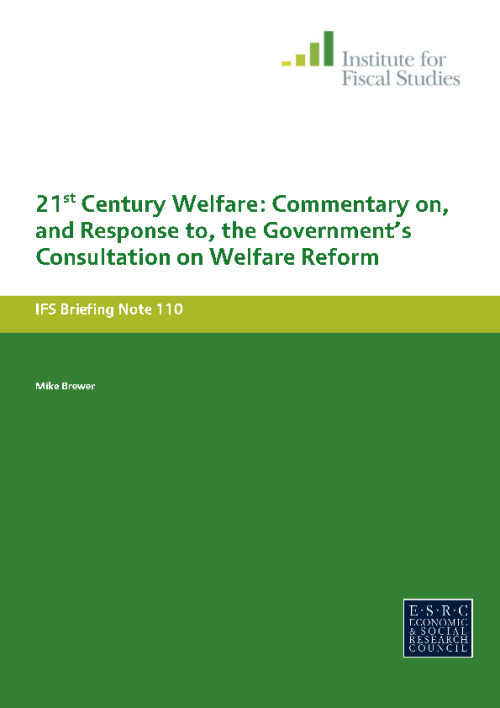The Department for Work and Pensions (DWP) consultation paper, "21st Century Welfare", argues that there are substantial advantages to having a more integrated benefits and tax credits system: it would reduce the government's administration costs and the amount of money lost to fraud and error, and be simpler for claimants to understand, which might in itself encourage some to enter work. We agree with this assessment, and consider there to be a strong case for integrating all benefits and tax credits into a single benefit. If the Government decides that full integration of the benefits and tax credits system is too drastic a change or not worth the risk of upheaval, then it should seek integration or alignment on a smaller scale wherever possible; we suggest the Government look first at the way that housing benefit and council tax benefit interact with tax credits for those in work.
The DWP document also suggests that work incentives need to be strengthened. This is a separate issue from simplification and integration: benefits and tax credits could be integrated without altering anyone's entitlement or their financial work incentives, and work incentives could be strengthened within the current set of benefits and tax credits. The DWP document does not specify which groups it is most concerned about, and so it is not possible to suggest what direction reforms might take. Ultimately, strengthening incentives for low earners to work can be done only by paying less money to those who do not work or by paying more money to those with low earnings.









